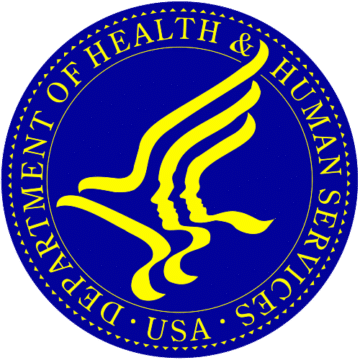


Every year, 12 million adults develop post-traumatic stress disorder (PTSD). This condition often occurs due to a one-time event such as an accident or natural disaster. But what happens if an individual repeatedly experiences trauma?
Complex post-traumatic stress disorder (CPTSD) results from months or years of traumatic circumstances. Learn what makes complex PTSD unique and become familiar with its symptoms and treatment options.
The idea of CPTSD originated in the early 1990s to describe the effects of repeated trauma. Experts believe that most CPTSD stems from interpersonal trauma at an early age. Experiences like abuse or neglect during childhood can increase the risk of this development.
Complex PTSD is a relatively new classification of disorder and does not appear in the Diagnostic and Statistical Manual of Mental Disorders (DSM-5). However, it is referenced in the World Health Organization’s International Classification of Diseases 11th Revision (ICD-11) as a category of post-traumatic stress disorder.
Complex PTSD, sometimes referred to as an analog called “Disorders of Extreme Stress Not Otherwise Specified” or DESNOS, was not included as a distinct diagnosis in DSM-4 and DSM-5. This decision was due to findings that 92% of those with complex PTSD/DESNOS also fit the standard PTSD criteria and the lack of sufficient empirical evidence suggesting it as a separate condition. Critics argue that DESNOS symptoms denote severe PTSD, not a separate trauma-related disorder. Some DESNOS symptoms, like impulsivity, anger, emotional issues, and particularly the PTSD Dissociative Subtype, were integrated into DSM-5’s PTSD criteria.
Complex PTSD and standard PTSD are not the same disorder. They often share a similar treatment plan, but CPTSD patients display additional symptoms. The healing journey is also often more complex for individuals struggling with CPTSD.
The main difference is that PTSD occurs because of a singular traumatic incident. The complex subtype results from long-term traumatic circumstances. Its connection to interpersonal trauma also causes lasting relationship issues.
Since individuals with CPTSD also display PTSD symptoms, it’s vital to be aware of what they are. The most common signs of PTSD include:
Individuals experiencing PTSD also develop increased hypervigilance and startle response. They may be easily frightened, leading them to be constantly on edge. Self-destructive behaviors can become coping mechanisms, including:
Children who develop PTSD might engage in role-play to deal with their trauma. They may re-enact the event or use their toys to act out aspects of the occurrence. Children are especially prone to nightmares surrounding the trauma.
Those who experience complex PTSD also display the above-mentioned symptoms. But complex PTSD comes with its own set of signals, including:
A profound symptom of complex PTSD is emotional dysfunction. Patients are often very sensitive to stress and struggle with reactive anger. They go through intense fits of sadness and cannot feel happiness.
One major study found that 93.5% of CPTSD participants felt worthless, and 92.2% felt guilty about the event. But the PTSD responses showed that only 20.8% felt worthless and 43.1% felt guilty. This discrepancy reveals how differently trauma is processed within the two disorders.
The same study showed that individuals with CPTSD were more likely to be impulsive. They also had higher tempers, more mood changes, and elevated paranoia.
Researchers are still trying to pin down the specific causes of CPTSD. We do know that trauma can have a significant impact on the brain.
Animal studies show that it affects the hippocampus, amygdala, and prefrontal cortex. It can also affect neurochemical levels, particularly norepinephrine and cortisol.
These regions are critical for memory function and our stress response. The two affected neurochemicals also play a significant role in stress response. The result is long-term emotional dysfunction and heightened levels of stress.
CPTSD is most common in people who have gone through abuse at the hands of their caregiver. This person might have been a parent, close family member, or an authority figure. But other long-term traumatic experiences also contribute to CPTSD, including:
Additionally, complex PTSD symptoms may be more severe if:
The occurrence of mental and physical conditions also increases the risk of developing CPTSD. Studies showed that people with complex CPTSD were more likely to have:
The studies concluded that complex PTSD is often more debilitating than PTSD. It has higher co-morbidities and may be tougher to treat.
Diagnosing CPTSD isn’t as straightforward as one would hope. Many doctors aren’t familiar with it because it’s a newer disorder. It’s often mistaken for PTSD or even borderline personality disorder (BPD).
The first step to receiving the proper treatment is getting an accurate diagnosis. Once diagnosed, individuals can decide if they want an in-patient or outpatient program. Since there’s no specific test for CPTSD, patients need to prepare for their appointment.
To help the doctor accurately diagnose the disorder, patients should ensure they:
The doctor will likely ask about past traumatic events. There’s no pressure to provide in-depth information at the first appointment. They will also inquire about family and medical history to rule out other issues.
Being open about medication, drug use, and alcohol consumption is critical. This information can help the doctor create an individualized treatment plan. Some people need a dual diagnosis and its corresponding remedies.
Most facilities offer both in-patient and outpatient programs. The choice depends on the patient’s symptom severity and co-occurring disorders.
In-patient treatment requires individuals to live at the facility. The length of stay varies depending on their progress. But usually, treatment lasts for several months and up to a year.
These programs offer the convenience of 24-hour access to medical staff. They also provide a more intensive schedule of therapies and opportunities to join support groups. In-patient treatment is ideal for individuals with severe symptoms and those who need more structure.
But in-patient treatment can be more expensive. It also requires patients to take time off from their careers, studies, and families. But many facilities work with various insurance companies to cover some or all of the costs of treatment.
Those who can’t afford to put their lives on hold can opt for outpatient treatment. It involves weekly visits to the facility for therapy and interventions. The number and length of visits depend on the patient’s situation.
Outpatient treatment can last weeks, months, or years. Some people also join support groups once they’ve completed their treatment. Many continue to see their psychologist at the facility for years.
Treating CPTSD involves several different methods, including medication and therapy. Having a solid support group is essential for keeping patients on track. Self-help approaches and lifestyle changes can also help reduce symptoms.
There’s no specific medication for complex PTSD. The doctor may prescribe a combination of pills to treat underlying symptoms instead. Anti-depressants are a popular medicine for CPTSD because they can balance neurotransmitters.
Depending on the patient’s needs, the doctors may also prescribe sleeping medication. CPTSD often severely impacts sleep cycles, so patients may find this medicine helpful. Antipsychotics can be an option if hyperarousal symptoms are present.
Medication is a helpful tool for reducing symptoms, but it won’t fix complex PTSD. It can be much more effective when combined with individual and group therapy. Medication is also not a long-term solution, so dealing with the root cause should be the focus.
Cognitive Behavioral Therapy (CBT) focuses on changing thought patterns to alter moods and actions. It can help identify triggers that cause intense symptoms. CBT then provides a framework for dealing with these thoughts.
CBT is especially helpful for people with complex PTSD because it teaches them how to deal with sudden stressful situations. Coping methods like journaling and meditation are typical tools.
Dialectical behavioral therapy (DBT) is another form of therapy beneficial for CPTSD. It’s a type of CBT created for people with intense emotions. DBT helps patients understand and manage their feelings in healthier ways.
EMDR is a newer treatment for PTSD that may also work for CPTSD. The American Psychological Association recommends this method but says more research is needed. It involves using rhythmic eye movements to desensitize patients to traumatic memories and feelings.
Beyond therapy and medicine, self-help approaches can benefit individuals with CPTSD. These usually include:
Holistic programs like art therapy, yoga, and equine therapy can help balance mood and inspire hope. These therapies also help patients meet like-minded people and bond over similar experiences.
Living with complex PTSD can be frightening, challenging, and frustrating. Re-living the same traumatic memories and experiencing complex PTSD symptoms affect an individual’s physical and mental health. The first step toward healing is receiving an accurate diagnosis.

Jamie Mantel is a Licensed Marriage and Family Therapist, with a Psy.D. in psychology. Jamie has worked for non-profits for over 20 years working with agencies, as well as her private practice in Huntington Beach, California.




















